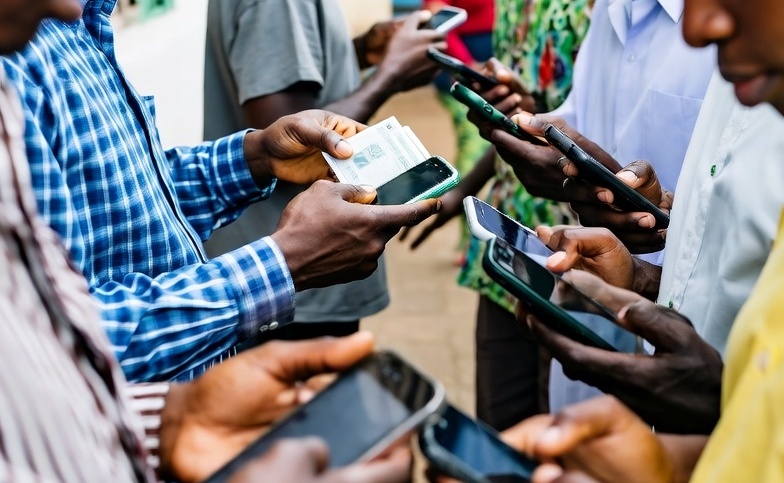Ikenna ‘Iyke’ Bede shared a report on Nigeria’s opportunity in the global gaming market, highlighting mobile gaming’s dominance and potential for growth
The global gaming industry is reaching a point of maturity, but Nigeria’s place in it is only beginning to take shape. While many advanced markets are seeing slower growth, emerging regions like Africa, and particularly Nigeria, still have room to expand. This shift opens a unique opportunity for the country to define its future in the global gaming economy.
According to the 2025 Global Games Market Report by Newzoo, worldwide gaming revenue is expected to reach 188.8 billion dollars this year. The figure sounds impressive, but it represents a slowing trend. Mature markets in North America, Europe, and parts of Asia are now showing signs of saturation.
In these regions, the number of new players has stabilised, spending habits have become predictable, and most companies are competing for the same pool of consumers.
In contrast, mobile and emerging markets are showing a different pattern. Africa, with its growing young population and increasing internet penetration, has yet to reach the same level of maturity. Nigeria, in particular, remains one of the continent’s biggest untapped gaming frontiers.
Newzoo’s report shows that mobile gaming still dominates the global industry, accounting for about 55 percent of total revenue. While mobile growth has slowed in advanced markets, it remains the most active segment in countries where consoles and gaming PCs are still considered luxury products.
In Nigeria, mobile phones serve as the first and often the only gaming device for most players. Affordable data plans and accessible app stores have made titles like ‘PUBG Mobile’, ‘Call of Duty: Mobile’, and ‘Dream League Soccer’ household names.
However, this accessibility has also limited the market’s depth. Most Nigerian gamers play free-to-play titles that rely on in-app purchases or advertising revenue, meaning the financial return within the local ecosystem is still modest.
Unlike in Europe or North America, where console and PC gamers spend heavily on premium titles and subscriptions, Nigerian gamers tend to avoid upfront payments. This difference in consumer behaviour points to both a challenge and an opportunity.
As the global market plateaus, major publishers and investors are looking for new audiences and new regions to sustain growth. This is where Nigeria’s market potential stands out. With over 220 million people, half of whom are under 25, the country represents a large, youthful, and tech-engaged population. If global studios begin to target African players with affordable, culturally relevant games, Nigeria could become a major hub in the next wave of gaming expansion.
For Nigerian creators, the slowing global growth means competition is shifting from size to innovation. Instead of trying to outspend established companies, smaller studios can focus on storytelling, representation, and mobile-first experiences tailored for African audiences. The international slowdown creates a vacuum that agile developers can fill by offering fresh ideas.
Newzoo also notes that console gaming is showing the fastest growth among all platforms, even though it accounts for a smaller overall share. This trend is tied to the success of titles with long-term engagement models and digital marketplaces that reward players for in-game progress. In Nigeria, console adoption is still low due to high import costs and unstable power supply, but a small and loyal player base still exists. If the cost barrier can be lowered, either through local partnerships or financing models, console gaming could expand its footprint.
The more immediate opportunity lies in mobile payments and digital infrastructure. Local developers can integrate mobile money and fintech solutions that make microtransactions easier. The rise of local payment platforms such as PalmPay and OPay shows that digital transactions are now part of everyday life. Integrating these tools into gaming could increase spending and retention without relying on foreign payment systems that often fail in Nigerian app stores.
Nigeria’s position in the global industry will depend on how quickly local stakeholders respond to these shifts. In mature markets, growth now comes from innovation in services such as cloud gaming and cross-platform integration. Companies like Microsoft and Sony are expanding beyond hardware, focusing instead on subscription models that give players access to hundreds of titles for a monthly fee.
For Nigeria, this model may not yet be practical due to broadband limitations, but the principle remains relevant. Building ecosystems that offer value beyond the initial game—through tournaments, in-game economies, and community-based experiences—can help the industry mature. The emergence of esports tournaments such as GamrX, NPL, and DecaCup shows what is possible when structure meets enthusiasm.
At the same time, Nigerian studios can learn from how international developers manage creative pipelines. Smaller countries like Poland built global recognition by focusing on storytelling and cultural authenticity. Games like ‘The Witcher’ became global hits because they drew from local myths while maintaining universal appeal. Nigerian developers can do the same with Yoruba, Igbo, or Hausa-inspired storylines that give global players a new cultural experience. To their credit, a small number of local creators have pioneered these ideas.
The next decade will likely decide whether Nigeria remains a consumer market or evolves into a creative force within gaming. A plateauing global industry should not be seen as a sign of decline, but as an invitation for new entrants to redefine what comes next.


